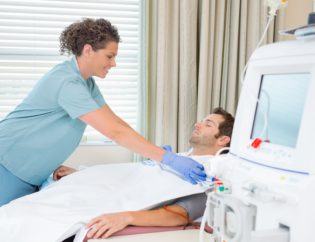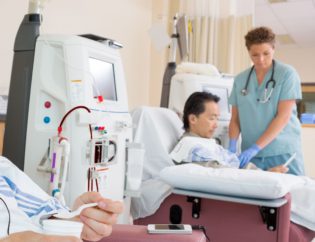There’s a lot of duties and responsibilities of a staff nurse is accountable for in a hospital. If you’re considering going to school for a specific type of job or career, it is in your best interest to research what a day in that role is like. Here are some of the day to day duties and responsibilities of a staff nurse.
Communication with Patients and Doctors
You are one of the first people that a patient sees and you need to make sure that you understand them. Patients will give you valuable information about their symptoms. Not following up or documenting a symptom can be damaging to the patient. Also, you need to make sure that the patient understands you. If you’re giving instructions to a patient, it is crucial to their health that they follow the directions.
Doctors are under a lot of stress and need to assess a patient quickly. A doctor will expect that you are going to communicate clearly and concisely all the time. This could be a matter of life or death. Not communicating a symptom or concerns that a patient has to the doctor could be detrimental. You also serve as a filter from the patient to the doctor. You can pull up medical records and inform the doctor on the patient’s history.
Checking Vital Signs
If you think that you would never read a chart or graphs after you graduate from college, you’re wrong. A large part of the duties and responsibilities of a staff nurse is correctly reading data from charts, graphs, and other machines. Vital signs can be quickly measured by a nurse, such as measuring body temperature, blood pressure, pulse rate, and respiration rate. Not only will you have to understand how to read the information that the devices give you, but you’ll also have to have the technical knowledge and expertise to use the equipment properly.
Coordination
As a nurse, you are at the center of all the action. Being someone on the front lines of seeing patients and communicating with doctors, your coordination is needed. A patient may have to come back for multiple visits, require a prescription, physical therapy, or other requirements. Having a checklist can help you coordinate the duties and responsibilities of a staff nurse.
Managing Medical Records
Most hospitals have their patient’s medical records securely stored online. It’s the nurse’s job to review all of the medical files and update any outdated information. Notes from the patient’s visit are logged into their file. These records are essential for insurance purposes, such as filing claims. It’s also part of the nurse’s job to make sure that files stay secure, not showing or revealing the file to people who shouldn’t otherwise see it. Also, a nurse may need to dig through a patient’s medical file if they become unexpectedly terminally ill or are in need of surgery. The nurse will find information such as allergies or reaction to medication, which can be useful for the doctor to determine treatment.











